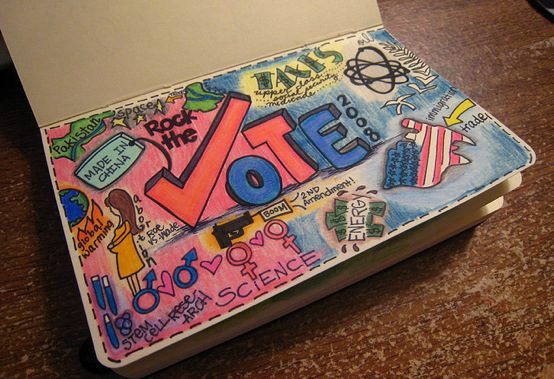Republicans Wreck the Vote

This week, seven college students and voting-rights advocates are challenging a North Carolina voting regulation law, alleging age-based discrimination. They argue that the law, which does not permit state university IDs or out-of-state driver’s licenses as acceptable voter ID and ends a DMV pre-registration program for teenagers, violates the 26th Amendment that enfranchised citizens 18 and over. Separately, efforts to shut down voting sites at universities are adding to complaints that the Republican-dominated state and local governments are deliberately blocking the youth vote, which turned out overwhelmingly for President Obama twice in North Carolina and nationwide.
The irony is, Republicans may be moving to depress the youth vote just when it could be starting to turn in their favor. While the millennials who comprise young voters now look to be strongly Democratic in the short term, David Leonhardt argues that today’s teenagers may grow up conservative:
In the simplest terms, the Democrats control the White House (and, for now, the Senate) at a time when the country is struggling. Economic growth has been disappointing for almost 15 years now. Most Americans think this country is on the wrong track. Our foreign policy often seems messy and complex, at best.
To Americans in their 20s and early 30s — the so-called millennials — many of these problems have their roots in George W. Bush’s presidency. But think about people who were born in 1998, the youngest eligible voters in the next presidential election. They are too young to remember much about the Bush years or the excitement surrounding the first Obama presidential campaign. They instead are coming of age with a Democratic president who often seems unable to fix the world’s problems.
As Leonhardt argues, college students and young voters in general are not inherently liberal groups. In the 1980s, Republicans dominated the youth vote: Ronald Reagan and George H.W. Bush won first-time voters, under-29 voters, and voters with some college education by large margins. Those then-young voters remain a consistently Republican constituency, lining up with Leonhardt’s argument that politics are more generational than anything. Young voters are entering the electorate while making their political allegiances in reaction to ongoing policies, forming beliefs that they will carry throughout their lives.
Legislating away unfriendly voters is rarely a productive path to long-term future success for a party seeking democratic legitimacy, and voting blocs generally aren’t courted by efforts to impede their franchise or deny their voting rights. With their gaze fixed firmly backward at their past two presidential setbacks, North Carolina Republicans and their counterparts nationwide are at risk of scoring a series of own goals.
This generation in particular could be a political opportunity ripe for Republicans’ taking. The teenagers who voted in the last election, and those entering the electorate now, are voting increasingly Republican in reaction to the current administration’s failures. A Democratic president that leans interventionist and is misleadingly ineffective on student debt makes for even more fertile ground for conservative alternatives. Rather than trying to inhibit the youth vote, Republicans should craft policy solutions that could serve to swing young voters to their side and take advantage of their momentum.
Instead, the GOP seems to be one step behind the data, once more.
Comments